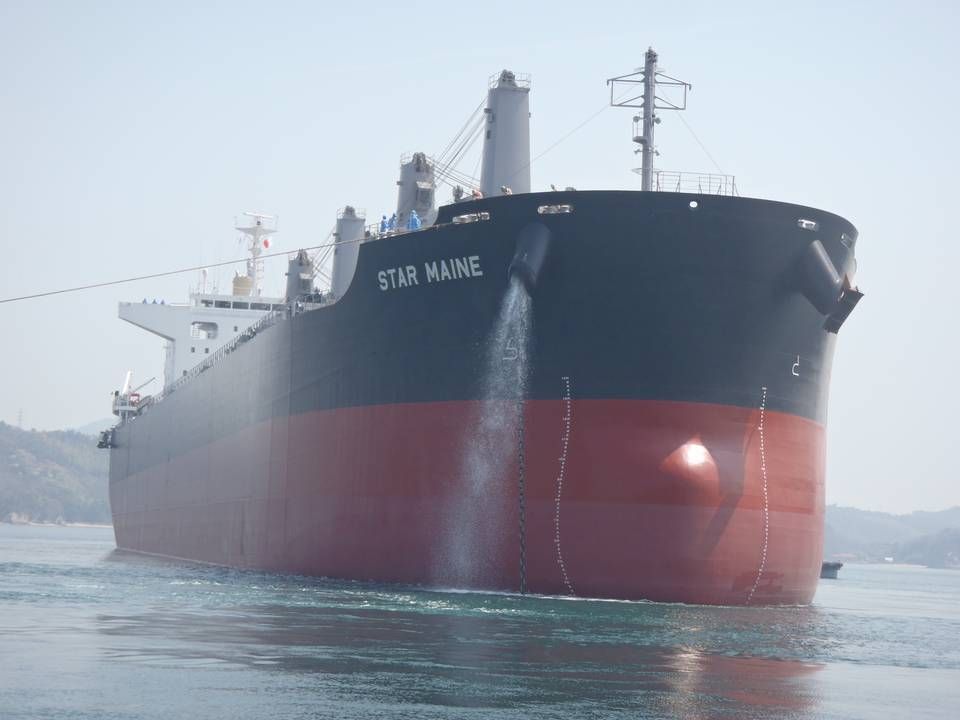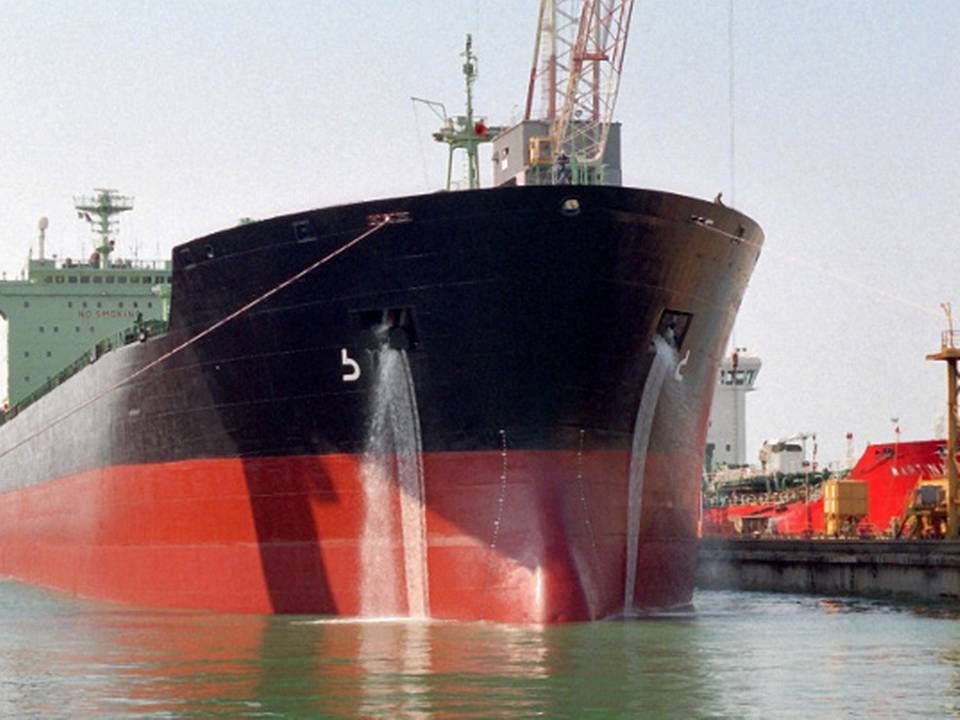"Unfortunately, I was wrong"

NEW YORK
“Mea Culpa!”
It sounds like a confession when CEO Robert Bugbee assumes responsibility for the fall of Scorpio Bulkers, the huge dry bulk carrier of the Scorpio Group, which has still not managed to set sails and present a profit since it was born.
“Unfortunately, I was wrong,” he tells ShippingWatch when explaining why Scorpio Bulkers’ management group never captured the promised benefits of the dry bulk market which - to Bugbee and basically all stakeholders of the industry - seemed imminent in 2013. Three years with rising deficits totaling around USD 650 million and a share price which ultimately collapsed are the facts and figures characterizing Scorpio’s bulk venture so far.
Perhaps, some would argue, it was not 'Mea Culpa', as Bugbee was just one individual in the crowd who misread the market and was over-optimistic with regards to how the Chinese growth engine would continue to boost global trade as it had done for 20 years.
Others, like the Manhattan-based bulk industry analysts, are highly critical of the project and find it more than simply odd that Bugbee has been able to raise equity again after the first three years’ meltdown. They mistrust his credibility and call him - whether pejoratively or as a compliment - the best sales man shipping has ever seen.
Robert Bugbee eyes a three-year tanker upswing
Deutsche Bank analyst Amit Mehrotra even describes Bugbee’s bulk business as a “fee machine,” referring to the fees the management group collects each time a vessel is traded, disregarding the very poor results of the company.
Back on track
With a group of new investors who entered the stock at rock bottom and who can realistically only expect gains, Scorpio Bulkers , or “The Beast”, as Bugbee also calls the carrier, is back on track again. At least according to Robert Bugbee, who states that the company is now in as good shape as it can be. Several vessels have been sold off. Orders cancelled. Ships converted to tankers. From an investor’s point of view, things can only improve, goes the rationale.
“The worst thing is to look over the cliff edge. It is worse than when you fall, because once you have hit the bottom, you know you will start to climb up again. All analysts say we have enough runway and enough liquidity. Together with a modern fleet and tremendous support from lenders, that is fantastic. Going forward, the rules of economy will prevail. We will see a reduction in the global fleet and more scrapping of old vessels. Supply is being curtailed. And demand keeps growing and will recover over time,” Bugbee tells ShippingWatch at the carrier’s New York offices.
“But we may be wrong,” he adds and takes another bite of his early lunch before an investor meeting, two McDonald’s burgers.
Plain talk
Political correctness has never been his brand. Nor does Bugbee mince words when he tells competitors that they are on thin ice or could do better if they merge, or when he frankly tells New York shipping analysts that they don’t understand the fundamentals of Scorpio Bulkers and accuses them of misguiding investors.
ShippingWatch has had access to some of the emails that have been received by the Manhattan based investment banks sent by Bugbee after what in his mind was a completely incorrect interpretation of the bulk carrier, in which he outwardly tells the investment banks that they are wrong.
“Some of the same analysts also foresaw an increasingly poorer product tanker market, which turned out not to be right. Nobody had foreseen the crash in commodity prices leading to a 30-year low in the bulk industry,” Robert Bugbee explains, adding that he generally respects the community of shipping analysts.
Scorpio Bulkers hit with bigger loss than expected
He is obviously content that new capital has flown into the carrier again after hundreds of millions of dollars were lost among the first group of investors who supported the very initial phase of the carrier. Among these was Monarch Alternative Capital.
Fortunately, if you ask Bugbee, these are US-based equity funds, and this makes a huge difference. The mentality among American investors is to never look back, as he argues, but always to focus on what’s new.
“You are constantly under pressure to perform. But it is also culturally accepted to say so if you screwed up. In Scandinavia you would sit down and say. Let’s talk things over,” as he puts it.
No basis for criticism
Regarding the “fee machine”, the Deutsche Bank analyst’s metaphor of how the management duo Bugbee and Lauro have tapped funds from the Scorpio engine by charging fees, Bugbee rejects that this should be an issue at all. This is not unusual, first of all, and details of the scheme are available for investors, he says.
Also, he points to the fact that insiders have thus far invested more than 75 million dollars in Scorpio Bulkers.
According to Deutsche Bank's shipping analyst Amit Mehrotra, the fee program, however, poses considerable negative consequences for the pricing of these two carriers, to the detriment of shareholders. For Scorpio Bulkers, the fees for 2015 amounted to over USD 25 million, stemming from the sale of a total of 27 vessels, which are presently under construction.
The fees owing to related partners in Scorpio are due for payment despite the fact that the divestments are made at heavy losses for shareholders. The USD 25 million corresponds to 15 percent of Scorpio Bulkers' current market value, or 40 percent of the total net proceeds brought home by the company earlier this spring yet another share issue that further diluted the value of existing shareholders' worth in the company.
The Scorpio group itself has a stake totaling 15.8 percent in the dry bulk carrier, after participating in the purchase of new shares, but according to Deutsche Bank, some of these purchases were financed by fees paid by the companies' shareholders in separate transactions.
All together, 21 million shares of common stock at three dollars per piece were issued in the first quarter of 2016 with a net proceed of 60 million dollars. Among the new shareholder are pension funds like Wellington, top shareholder in Scorpio Tankers.
Analysts: Worst months for dry bulk ever
Million dollar fees for owners hit Scorpio
Related articles
Analysts: Worst months for dry bulk ever
For subscribers
Dry bulk carriers lost billions of dollars in 2015
For subscribers





















